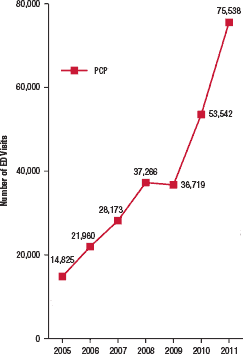
White Collar Drug Abuse
With over two-thirds of all adult drug abusers employed, it is a high probability that a few employees are engaging in such dangerous illicit behavior in your company. Although many might stereotype the employed drug abuser as the creative artist in a bohemian design firm, the dangers apply to employees who use their abuse to[Read the Rest]

Phencyclidine: Concern for New York City Employers
The plague that spread across America in the 70’s is not gone, and a new SAMHSA study suggests that it might be making a rebound. PCP, angel dust, and wet are just a few of the terms used to describe recreational phencyclidine. Legally used in veterinarian clinics as an animal tranquilizer, recreational users indulge to[Read the Rest]

Marijuana Drug Test Detection Times in Urine
Previously, we posted an article on standard drug test detection period and it generated a lot of interest from employers looking to find out exactly what does a drug test check for. Our previous article tried to provide a short and rough idea of how drug detection works by covering multiple substances and multiple different[Read the Rest]

You Know You’re in HR When…
How hard is it to work in HR? Here are the top 20 interesting descriptions we found shared online: You still get calls from employees who resigned 5 years ago looking for work advice. You get cornered in the in the bathroom with “I was wondering” questions. People confuse HR for JD and assume you[Read the Rest]

Drug Test Detection Period
Did you know that the detection period for drugs during a drug test varies greatly? For example, an infrequent smoker of marijuana might pass a urine drug test 3 weeks after last use, but a regular smoker will test positive for up to 2 months after last use! Cocaine users have even a shorter detection[Read the Rest]
Raleigh County School’s drug test program showing results
By Sarah PlummerRegister-Herald Reporter Raleigh County School’s new Pre-employment, Post-offer Drug Test Program is already ensuring drug-free hires, reported schools Safety Director Jennifer Colvin at Thursday’s meeting of the board of education. During November, the first month testing was implemented, two out of 30 potential employees failed the urine test. In December, one out of[Read the Rest]
Treat nutrition and cancer research cautiously: study
NEW YORK (Reuters Health) – Studies suggesting that everything from cinnamon to lobster either raises or lowers a person’s risk of cancer may sometimes be a bunch of baloney, a new report suggests. Researchers created a list of 50 random food items, then found studies from the last 35 years that claimed risks or benefits[Read the Rest]
Diabetes and Older Adults
As older adults live longer, they may have more than one chronic disease. Or, they may have a health problem that can lead to another condition or injury if not properly managed. The older adult may also experience healthcare in various settings, such as the hospital, assisted living facility or at home. These situations can[Read the Rest]
Delaying the control of blood pressure among middle-aged adults with diabetes lowers quality of life
Long delays in controlling blood pressure among middle-aged adults with diabetes can lower quality of life, concludes a new study. The University of Chicago researchers estimated the harms of different delays in controlling blood pressure in a hypothetical population of 10,000 middle-aged adults (aged 50 to 59) with newly diagnosed type 2 diabetes. With a[Read the Rest]
Oxygen Deprivation in the Womb May Raise ADHD Risk
MONDAY, Dec. 10 (HealthDay News) — Children who were deprived of oxygen in the womb or during birth are more likely to develop attention-deficit/hyperactivity disorder (ADHD), a new study says. Kaiser Permanente researchers found oxygen deprivation may play a greater role in the prevalence of ADHD than other genetic or familial risk factors for the[Read the Rest]
